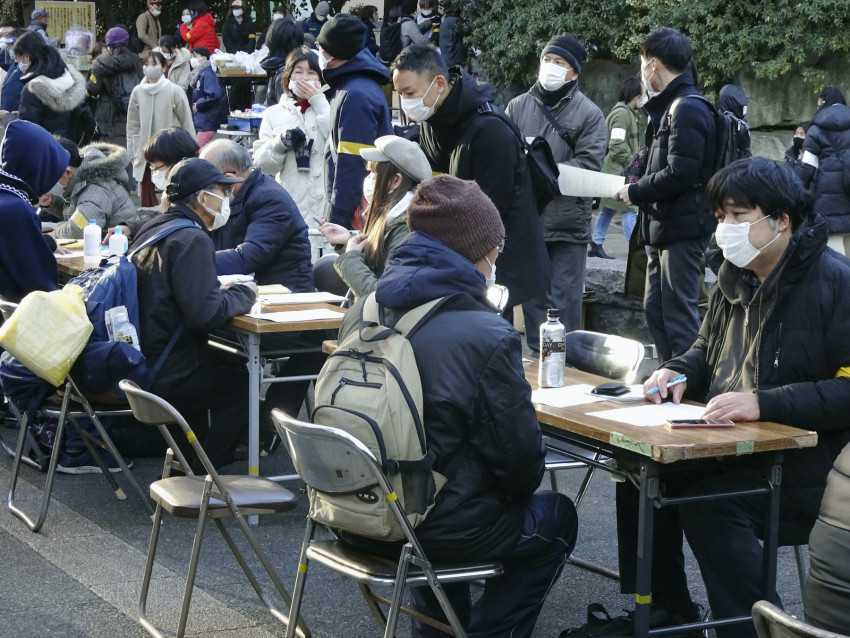COVID-19 cuts jobs, boosts stocks, widening financial gap in Japan
28 March, 2021

The coronavirus pandemic has taken significant monetary impacts in Japan, with the widening gap between the rich and the poor being truly a prime example.
The pandemic has cost many jobs, especially in the eating and travel industries, while stock and other asset markets are booming on the trunk of global monetary easing.
At Isetan department retail outlet in Tokyo's Shinjuku district, which posts the best sales of all shops in Japan, a rings buyer calls strong sales last summer "mysterious."
"Despite too little exuberance at the retail store, we experienced high sales," the customer said, recalling the situation after the government lifted the country's first express of emergency over COVID-19 last May.
Main customers were the store's wealthy regulars and the so-called "new rich," including small managers of information technology firms and YouTubers who increased their income by firmly taking advantage of the pandemic.
Such customers apparently had previously chosen what to shop through the stay-at-home period and only wanted your final check of shapes and weights of the products at the store.
Jewelry worth countless million yen was sold on the fly, the customer said.
Sales of luxury import cars priced above 10 million yen and higher were also brisk. Revenue totaled 22,712 products in 2020, surpassing year-previous levels.
"Buying things whenever they desire is what we call rich people," said a person mixed up in auto market. "Situations around them do not necessarily affect them."
Significant stimulus and monetary easing measures by Japan, america, Europe and elsewhere to bolster pandemic-hit economies have sharply boosted asset prices.
Such measures briefly lifted the 225-issue Nikkei Stock Normal higher than the 30,000 line for the first time in over 30 years. Cryptocurrencies such as Bitcoin as well surged, prompting some industry participants to end up being alert against potential asset-inflated bubbles.
Nomura Analysis Institute estimates wealthy households -- which hold net financial assets greater than 100 million yen -- totaled 1.33 million as of 2019.
Hiroyuki Miyamoto, somebody and chief consultant at the Tokyo-based think tank, said the company is likely to make an identical estimate for 2020 because bigger stock prices offset the monetary impact from the COVID-19 pandemic.
Meanwhile, the pandemic took a toll on nonregular workers, a lot of whom work operating sectors.
"I couldn't have imagined this past year that I would come to such a place," a 49-year-old unemployed man said in December as he received food from an aid group at a park in Tokyo's Ikebukuro district.
The man shed his job at a restaurant where he previously worked for years.
The quantity of regular employees rose 360,000 in 2020 from a year earlier, but that of nonregular workers dropped 750,000, according to Ministry of Internal Affairs and Communications data.
The effect indicated that companies adjusted employment by cutting nonregular staff to survive the pandemic-hit economy.
Ryutaro Kono, chief economist in BNP Paribas Securities (Japan) Ltd, said the unstable nonregular occupation is one of the reasons for the slow economic recovery in recent years.
If consumer spending becomes sluggish as nonregular personnel cut expenditures on fears to be laid off in recessions, "The recovery of japan economy will still be lackluster," Kono warned.
Source: japantoday.com
